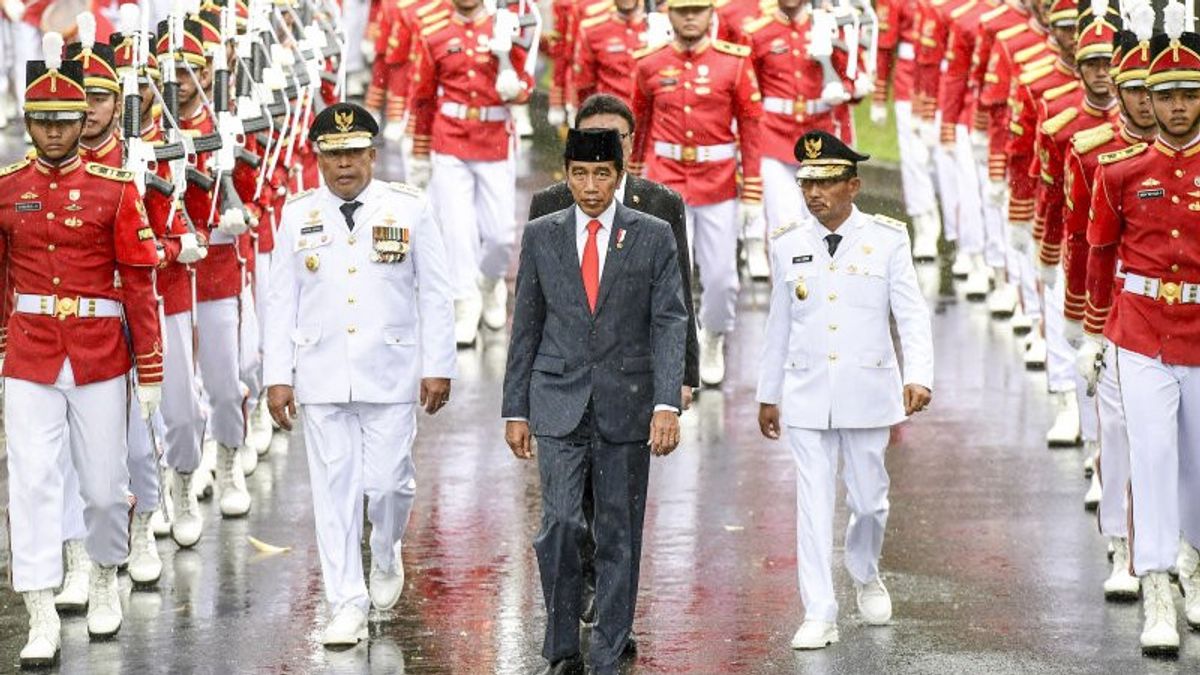JAKARTA - Researcher from the Institute for Development of Economics and Finance (Indef) Rusli Abdullah assessed that the government has prepared a special strategy for the initiative to eliminate the provision for the transfer of the General Allocation Fund (DAU) to the regions by 26 percent.
According to him, the discourse on the abolition of the 26 percent provision has been included in the discussion of the Central and Government Financial Relations Bill (HKPD), which is currently being discussed with the DPR.
"If we look at the version of the HKPD that was submitted by the government through the Surpres (Presidential Letter) to the DPR, there is a clause stating that there is no longer a DAU ceiling at what percentage," he said in a webinar on Wednesday, October 6.
According to Rusli, if the proposal is approved by the DPR, the central government can 'at will' determine the amount of the DAU budget to be sent to the regions because there is no stipulation on the portion that regulates it.
"Well, this 26 percent figure is a number that becomes a reference for local governments to carry out budgeting or plan their APBD," he said.
For information, DAU is one component of expenditure in the APBN, and is one component of revenue for the APBD. The DAU issued by the central government is 26 percent of net domestic revenue.
Then, the DAU received by the regions itself is the net domestic income for the previous two years. This is intended to provide a time lag for budgeting so that there is no rush in preparing the APBD.
For example, the 2021 Jakarta Provincial Budget is determined based on the 2019 DAU allocation decision (26 percent of net domestic revenue in 2019).
“I heard from several friends in Senayan (DPR), that the discussion is still tough because some have asked for the 26 percent ceiling not to be removed so that regional development planning can be clearer. But this is a political process that will continue," he said.
Rusli himself suspects that later regional heads will speak out because there is no clarity and certainty about the funds that will be received by them. However, this Indef researcher sees that the government is quite good at reducing this.
“Certainly the regions will certainly shout, such as governors, mayors, regents will speak out. But remember, in 2022 and 2023 there will be no local elections to elect a new leader, there will only be Plt or Pjs (temporary officers/duties) chosen by the central government. So that by removing the ceiling there will be no shouting because the governors, mayors, and regents are chosen not based on the people's choice through local elections but by the center. If you keep screaming, just take it off," he explained.
Rusli assessed that the government's strategy could not be separated from the condition of the state budget which was quite heavy in bearing the burden of the budget deficit.
It must be realized that starting in 2023, the provision for the APBN deficit must return to a level below 3 percent of gross domestic product (GDP). This is a step to revitalize the state budget after in 2020 to 2022 it is allowed to exceed the provisions above 3 percent.
"I see it is necessary for the government to see a heavy fiscal burden for 2023 and beyond, so there needs to be flexibility from our APBN," he said.
The English, Chinese, Japanese, Arabic, and French versions are automatically generated by the AI. So there may still be inaccuracies in translating, please always see Indonesian as our main language. (system supported by DigitalSiber.id)









